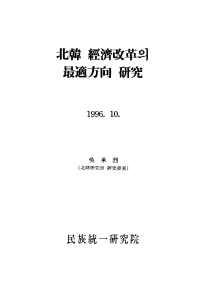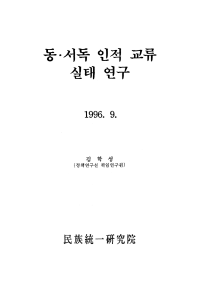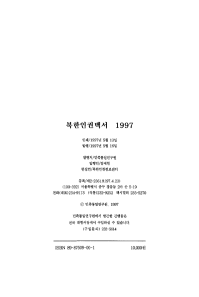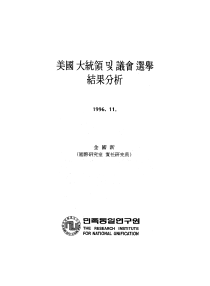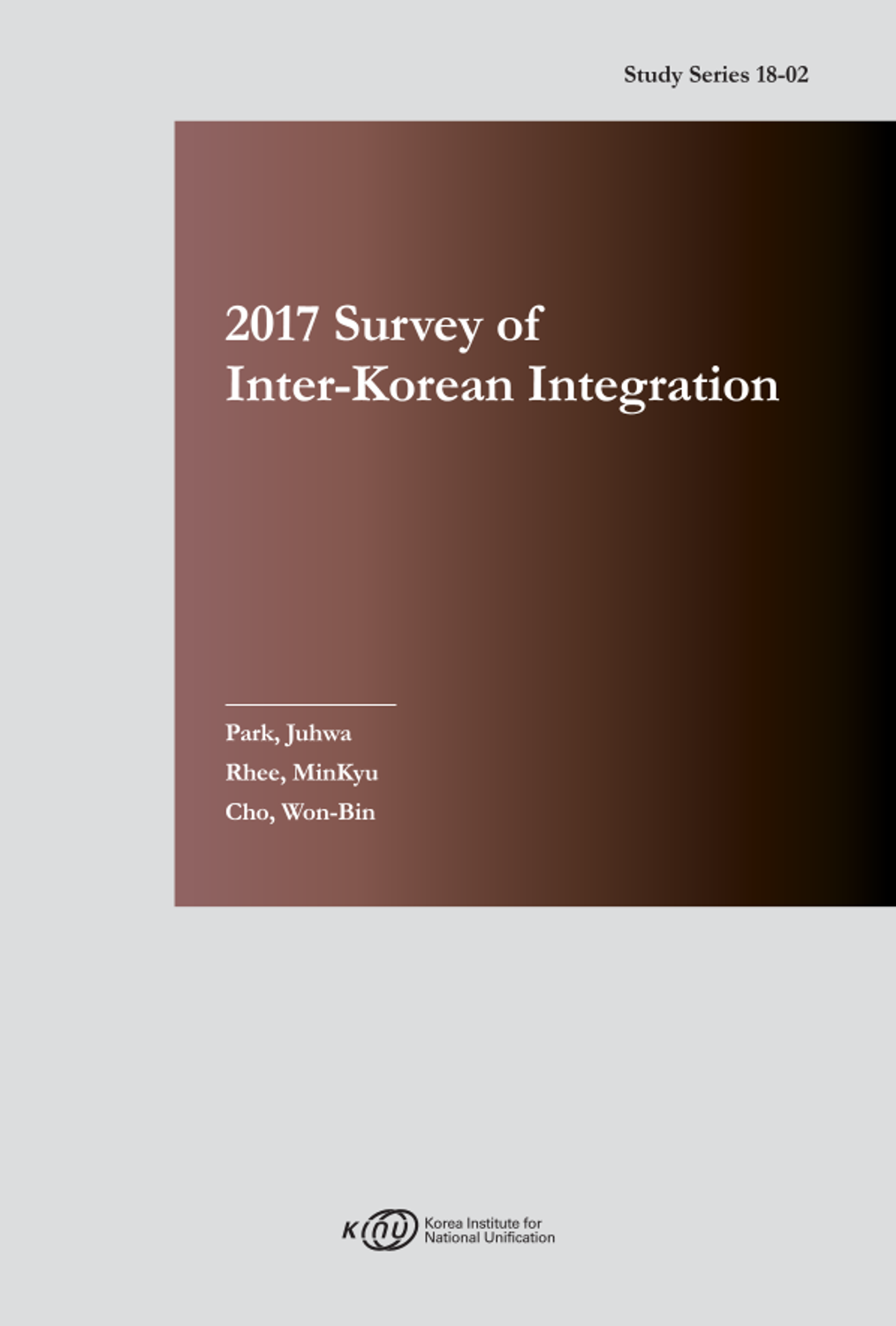
연구원발간물Study Series 18-02
2017 Survey of Inter-Korean Integration
- 발행사항
- Seoul : Korea Institute for National Unification, 2018
- 형태사항
- 57p. ; 23cm
- 총서사항
- Study Series
- ISBN
- 9788984799165
- 청구기호
- 000 SS18-02
소장정보
| 위치 | 등록번호 | 청구기호 / 출력 | 상태 | 반납예정일 |
|---|---|---|---|---|
이용 가능 (2) | ||||
| 1자료실 | G0016914 | 대출가능 | - | |
| 1자료실 | G0016915 | 대출가능 | - | |
이용 가능 (2)
- 등록번호
- G0016914
- 상태/반납예정일
- 대출가능
- -
- 위치/청구기호(출력)
- 1자료실
- 등록번호
- G0016915
- 상태/반납예정일
- 대출가능
- -
- 위치/청구기호(출력)
- 1자료실
책 소개
The public will for inter-Korean integration has been on a constant decline. It does not simply indicate a decrease in the percentage of people who feel a sense of moral obligation or the need for unification. It rather illustrates that there has been a reduction in the meaning, value, and influence of unification on individual life. This research shows that the attitude on unification in view of ideal and normative value of our society differs depending on age. The percentage of people who believe that unification is necessary becomes higher with age. However, only a small number of people responded that unification is necessary when factoring in practical values. A majority of South Koreans do not have an expectation that unification will change the current situation. They refuse to make even a small sacrifice in return for unification and believe that unification will not benefit them. To sum up, the attitude on unification viewed from an idealistic perspective is in stark contrast to that of unification in a realistic sense...
목차
1. Introduction
2. Attitude toward Unification
A. A Sense of Moral Obligation for Unification
B. Detailed Attitude toward Unification
C. Thought on Unification Benefits
3. Attitude toward North Korea
A. Images about North Korea
B. North Korea as Object for Dialogue and Compromise
4. In-depth Analysis: Images of North Korea and Policy on Unification and North Korea
A. Result of Analysis on Factors about Policy on Unification and North Korea
B. Analysis of Support in Each Area of Policy
C. Result of Cluster Analysis on Unification and North Korean Policy
D. Result of Correspondence Analysis: Two-track Approach of Pressure and Engagement Policy vs. Perception on North Korea
E. Policy Implications


